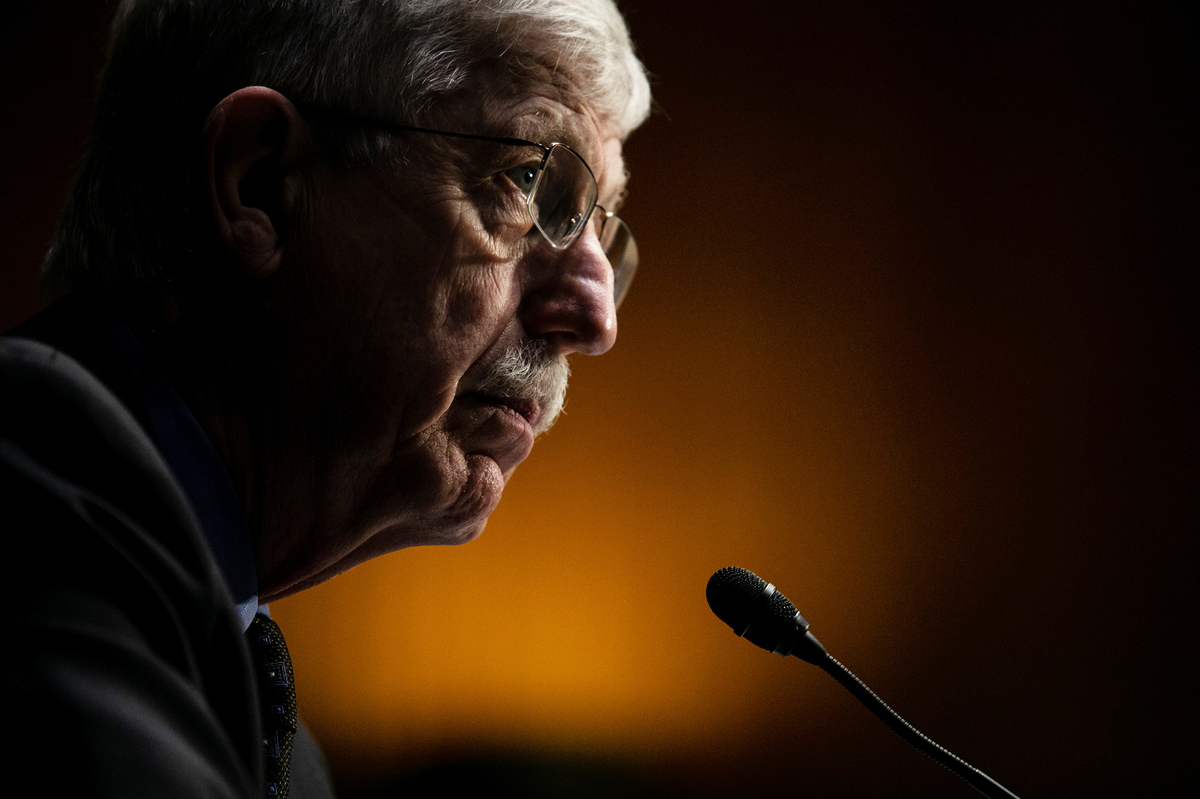
[ad_1]

National Institutes of Health Director Francis Collins is stepping down by the end of the year.
Graeme Jennings/Getty Images
hide caption
toggle caption
Graeme Jennings/Getty Images

National Institutes of Health Director Francis Collins is stepping down by the end of the year.
Graeme Jennings/Getty Images
Francis Collins, director of the National Institutes of Health, the largest funder of basic and clinical biomedical research in the world, says he will step down by the end of the year.
Collins, who has served three U.S. presidents as head of the institute for more than 12 years, made the announcement on Tuesday. An interim director — who will be nominated by President Biden and must be confirmed by the Senate — has not been named.
“It has been an incredible privilege to lead this great agency for more than a decade,” he said in a statement. “I love this agency and its people so deeply that the decision to step down was a difficult one, done in close counsel with my wife, Diane Baker, and my family. I am proud of all we’ve accomplished.”
He said he believes that “no single person should serve in the position too long, and that it’s time to bring in a new scientist to lead the NIH into the future.” He praised the NIH staff and the scientific community for its “lifesaving research.”
Collins, a researcher-physician who speaks openly about his Christian faith, plus his love of motorcycles and playing the guitar, is a scientific superstar who has served longer than any other NIH director since the position became a presidentially appointed one in 1971.
He was picked by Obama to head NIH in 2009
President Barack Obama chose Collins to lead the NIH in 2009, and his appointment was unanimously confirmed by the Senate. Collins is “beloved on Capitol Hill,” says Jennifer Zeitzer, head of public affairs at the Federation of American Societies For Experimental Biology.
He is “able to clearly explain what NIH is doing” to lawmakers, which has helped to safeguard and expand the institutes’ approximately $40 billion budget, Zeitzer says. “I give Collins a ton of credit for helping to make that happen.”
When President Donald Trump took office, several top Republicans in Congress urged that Collins be kept on. Biden also asked him to stay on.
In an interview with The Washington Post on Monday, Collins said he made the decision in May to step down after concluding that the NIH was “a pretty stable place,” despite the coronavirus pandemic.
“There comes a time where an institution like NIH really benefits from new vision, new leadership,” he told the Post. “This was the right timing.”
He is described as apolitical and spiritual
Over the course of his long career, Collins has really been “apolitical,” Victor DiRita, the chairman of the Department of Microbiology & Molecular Genetics at Michigan State University, told NPR last year.
“He’s been a strong leader. He’s gotten the resources needed to make the NIH the envy of the world to lead in certain scientific areas, without question,” DiRita said. “He also is a very spiritual person. He’s not afraid or shy about showing all the aspects of his of his humanness. I think that’s really valuable. And it’s a special thing about Francis Collins.”
Collins supported Anthony Fauci, one of his NIH center directors and the nation’s top infectious disease expert, as he was attacked by then-President Trump, and dismissed calls for his ouster or demotion, saying the idea was “unthinkable.”
Before leading government research agencies, Collins started his career as a geneticist who used cutting-edge molecular biology techniques to help identify key genes involved in diseases like cystic fibrosis.
He headed the effort to sequence the human genetic code
In 1993, he became director of what was then called the National Center for Human Genome Research, which was in charge of a massive effort to fully sequence humanity’s genetic code.
Collins stood next to President Bill Clinton at the White House in June 2000 to announce that a working draft of the human genome had finally been completed. “It is humbling for me and awe-inspiring to realize that we have caught the first glimpse of our own instruction book, previously known only to God,” Collins said at the time. “What a profound responsibility it is to do this work.”
After becoming the head of NIH, Collins troubled some researchers by emphasizing science that’s directly related to developing new medical treatments, even creating a new National Center for Advancing Translational Sciences.
“Dr. Collins made a statement once that kind of raised the hair on the back of the necks of a lot of scientists by saying, you know, this is not the National Institute of Basic Sciences, it’s the National Institutes of Health,” recalled DiRita. “I think a lot of people were like, ‘Whoa, we do basic science, too.’ “
Health and Human Services Secretary Xavier Becerra said of Collins: “It takes an extraordinary person to tackle the biggest scientific challenges facing our nation — and under three presidents, amidst three distinctly different chapters of American history. Dr. Collins, master of scientific breakthroughs and scientific reason — from mapping the human genome to fighting the most devastating pandemic of a century — has routinely broken ground to save countless lives, while unleashing innovation to benefit humanity for generations to come.”
Tuesday’s statement said that Collins would continue to lead his research laboratory at the National Human Genome Research Institute, “which is pursuing genomics, epigenomics and single cell biology to understand the causes and means of prevention for type 2 diabetes. His lab also seeks to develop new genetic therapies for the most dramatic form of premature aging, Hutchinson-Gilford Progeria Syndrome.”
[ad_2]
Source link
